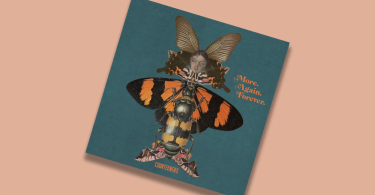John Peel was quite simply, a legend. The BBC‘s longest-serving DJ, previously heading the Pirate Radio Station ‘Radio London’, he broke all the rules of radio and broke brand new genres live on air.
Ten years after his death in 2004, dying at the age of 65 from a heart attack whilst of holiday, we at Kettle decided to celebrate the man that changed musical history by discussing his lasting impact on the world as we know it today.
Against the grain
Born in Heswall in Chesire on the 30th of August 1939, he was the son of upper-middle-class cotton merchant John Robert Parker. Yet despite his upper-middle class upbringing (attending school with the likes of Michael Palin), he understood and related to London Grime artists. He was also an avid Liverpool FC fan in a time when football was as a working class hobby.
Whilst the state-run BBC continued to play dance hall bands, John headed the pirate radio station Radio London, permanently changing his name for the second time to protect his identity (his real name was John Robert Parker Ravenscroft). In fact, he broke all the rules of radio, reading out poetry, radical street press publications and even discussed politics. Later in live he even had John Lennon and Yoko Ono come in and played a cassette recording of their unborn baby’s heartbeat live on air.
Anti-Establishment
Peel battled bullies at school and did time in the army, leaving him with a healthy disregard for authority. He was outwardly known as being anti-establishment, as he felt he had been part of it and seen how it worked, and he didn’t like it.
John Peel’s open minded-ness, combined with his willingness to take risks, allowed him to become a musical pioneer; breaking new music and providing the previously sheltered British Public with a music education when he joined the BBC in 1967. It is no surprise that he was awarded the Order of the British Empire by the Queen in 1998.
The Peel Effect
He was the first to break new genres of music including underground Drum and Bass, Hip Hop, Jungle, Death Metal, Reggae, Dub-Step and Grime, which lead to him being known as the original new music broadcaster.
He discovered and played bands and artists like Biffy Clyro, The White Stripes, You’ve Got Foetus On Your Breath, Napalm Death, Pink Floyd, David Bowie, Belle and Sebastien, the Bonzo Dog Doo-Dah Band, New Order, The Cure, The Ramones, The Smiths, Buzzcocks, The Undertones, Happy Mondays, Stone Roses, Pixies, James, Morrissey, New Order, Nirvana and many more.
Yet he went further than simply playing their music. He hung out with artists, inviting artists like Jarvis Cocker and his band Pulp to come and play at his home in Great Finborough in Suffolk. He even drove Captain Beefheart and his band to their gigs for their UK Tour.
Due to the Musicians’ Union rules, John Peel’s show had a large amount of air time for non-recorded music and only a small amount of ‘needle time’ (vinyl-playing time). This meant that he had to find a new way of airing the music he wanted to play; to avoid being forced to play live dance-hall music, he had to bend the rules. So what did he do? Peel choose to invite musicians to record live sessions which would be played on his BBC Radio 1 show. These sessions became famous in their own right and were known as The Peel Sessions.
The Legend lives on
John Peel is a man who will live on in music history for decades to come. Upon his death, he was mourned by the masses and across generations his name was known. Blur, Oasis and New Order were amongst the first to pay their respects, even Prime Minister Tony Blair paid tribute.
However, this is not the end of the Peel story. His family worked together with my local county council to create a place that would best pay tribute to him. He had always been known locally for caring about young people and encouraging creativity, and therefore the John Peel Centre for Creative Arts was built in my hometown of Stowmarket in Suffolk.
The centre was not simply built in his name; his family were actively involved in the planning and development of the project from the start. It is a place for local bands to play, local artists to display their work and creative types of all sorts to develop their skills. For more information about the centre, check out the website here.
A final word
John Peel was an amazing man. His reputation as being the leading figure in radio was not only apparent in my hometown, but across the UK, and even across the pond in the US where he started his career. He dug deep in a pre-internet age, finding cutting edge music which he sometimes played at the wrong speed, or under the wrong name, simply because he was fully engaged in the music itself. To put it simply, he was and always will be, a musical legend.
Share your thoughts on John Peel in the comments below!








